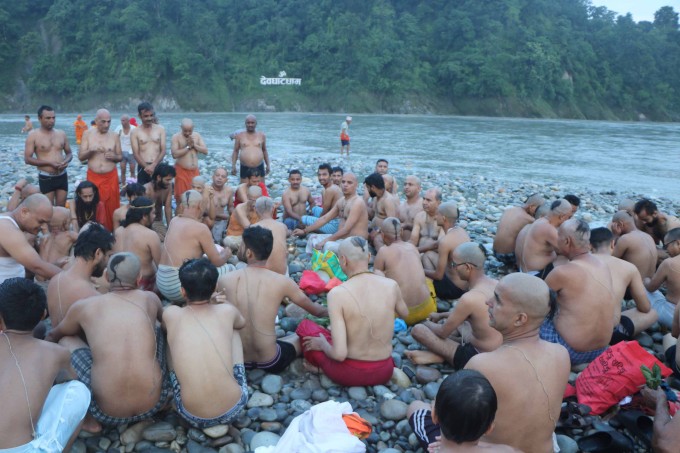He hunches at the dining room table, putting the finishing touches on his miniature World War II tank. Deep in concentration, he keeps his hand steady as he works to make the scaled-down plastic model look as realistic as possible.
And as he does so, Maxime Fannoy — locked-down husband and father riding out the coronavirus with his family in Belgium — feels the outside world’s unremitting pandemic nightmare slip thankfully out of focus.
“It’s an escape. When you are building a kit or a scene, you really plunge into it,” Fannoy says. “Everything else loses its importance, and in the current context, that is a real help.”
Rejuvenated by quarantines and lockdowns, the old-school pastime of creating miniature worlds by assembling and decorating scaled-down models or running mini trains on mini tracks is enjoying a revival — plastic therapy against the pandemic blues.
Sales are booming as families shorn of their social lives keep idle hands and minds busy by making models and dusting off train sets. British brand Airfix saw a run on plastic kits for Spitfires, the iconic World War II fighter plane. Hornby, which owns Airfix and also makes an array of model trains and cars under other brands, has become profitable again with sales soaring.
The analog pleasures of gluing and painting, fixing and fiddling, are also peeling some members of the digital generation away from their screens. Teens are catching the modeling bug from parents and grandparents who suddenly find themselves with time again to indulge in hobbies many had been too busy to pursue since childhood.
In France, 70-year-old retiree Guy Warein says his lockdown-time renovations on a model train set that had been gathering dust in his attic have helped him connect with his video-gaming grandkids, pulling them “from the virtual world to reality.”
On a visit when school was out, the eldest, aged 16, said: ”‘Come on Grandpa, let’s go and see the trains and make them work.’ So we put them together and did things together,” Warein says. “It’s a coming together of generations, and that can only be beneficial.”
So he repaired the HO-scale locomotives and rolling stock inherited from his father-in-law and fixed up the room where he intends to run them on a U-shaped track layout that he’s designing. The activity helped Warein, a former educator and municipal councilor, tune out the pandemic and its anxieties.
“You fill your time and forget what’s happening around you,” he says. “Turning on the radio or the television is like being hit with a truncheon, because they systematically talk about the virus and the misfortunes it has brought. ... Having a hobby allows me to think of other things.”Manufacturers have struggled to meet the global surge in interest. Hornby’s CEO, Lyndon Davies, says he had to airfreight 10,000 Spitfire kits from a factory in India when Airfix’s stocks ran dry for the first time in the company’s 71-year history.
“What you don’t want of your kids, your grandchildren, is them sitting watching the TV or staring at phones all the time. This pandemic has really brought families together at home,” he says. “They have used the types of products we make to try and forget what was going on in the outside world.”
Another British manufacturer, Peco, has hired extra staff to satisfy surging orders — up by 50% in some markets — for its miniature trains, tracks and modeling accessories.
“This is happening everywhere: Our markets in the UK, across Europe, in Australia, North America, in China,” says Steve Haynes, the sales manager. “People are making far greater use of their spare time, their free time, their enforced time stuck at home to tackle the boredom, to tackle the isolation and do something creative.”
In Belgium, Fannoy calls himself a “model-maker made from lockdown.” He had long bought plastic kits, because they reminded him of childhood, but had never had time to build them. Instead, he hoarded them away in a wardrobe.
When the pandemic shut down his busy life and forced him to do his job as a business developer from home, he set to work on his stash, stocking up on brushes and paints in the final days before lockdown.
He first completed a series of 1/24th-scale rally cars. A WWII Tiger tank, painted to look weathered and mounted in a wintry scene with troops and a jeep, followed at the end of 2020. He posted photos of the diorama, the fruit of 50 hours of handiwork, on Facebook.
“I generally start in the evenings at around 8 p.m. and stop around 11 p.m. to midnight,” Fannoy says. “I can no longer do the things I would normally do. So what do I do? I open a kit and work on it. In fact, it’s my wife who comes and pulls me out of this mini-world I live in.”
“The hours fly by. It’s a form of meditation,” he says. “It has helped enormously in getting me through the past year.”







